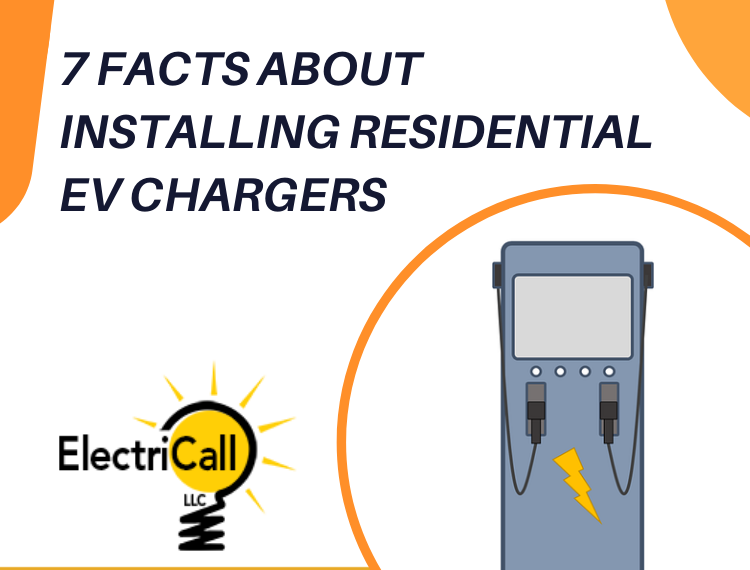
What were your major concerns before buying an electric vehicle? If charging was one of them, you are at the right place. Here we will discuss all the facts you need to know about charging EVs and how residential electricians are inevitable.
Even when there are EV charging stations in and around the city, waiting in the public charging station is tiring. The best alternative is setting up an EV charging point at your own house. It will save you a lot of time that you spend on public charging stations.
Many are still unaware that the Colorado municipalities allow homeowners to set up charging units at home. So, here are some of the facts that you should know if you are an EV owner in the region.
Install Residential Electric-Vehicle Chargers
Things to check before installing a residential electric-vehicle charger:
Permit:
Let us begin with the most crucial point, permit from the government authorities. You need a permit from the concerned department of Colorado to do rewiring works.
The same is the case for installing a home charging station. Setting up a circuit breaker box in your garage is necessary to charge EV at home. It is not a backbreaking task; you can apply for the permit online and get it at the comfort of your home.
However, some locations do not require a permit to install a charging unit. It is always better to consult a residential electrician; they will check the requirements and do the necessary online procedures.
Working of a Residential EV charger:
People often believe that a residential EV charger charges your car directly, but that is not true. A home charger converts the standard AC into DC, which ‘Plug-in Electric Vehicles’ store in their batteries.
There are two levels of chargers for residential EV charging.
Choose the right charger:
This is one of the most important aspects of installing a charging point at home. There are two types of chargers, and both have their own peculiar ways of functioning.
The two power variations available for the residential electric charger are 120-volt and 240-volt. Following are the two levels of chargers to understand which one is right for your electric vehicle.
- Level-1 Charger:
Usually, people install a regular 120-volt charger in their homes. It is somewhat similar to the standard USB cables and won’t consume more electricity than your toaster. The only difference between a level-1 charger and the charging station chargers is that the latter uses a little more power.
One of the perks of having a level-1 charger is its convenience. So, if you want a lesser power-consuming and portable charger, a level-1 charger is the solution.
- Level-2 Charger:
These types of chargers consume 208 volt- 240 volts of electricity, almost equal to six toasters. However, it comes with the benefits of fast charging, which many prefer over convenience.
Contact a residential electrician to understand which one is right for your vehicle and home.
Cost of charger installation:
One of the biggest misconceptions about EV charger installation at home is that it is expensive. The truth is that the cost depends upon many factors, and it is not expensive in all cases.
The main factors that affect the cost of EV charger installation are the equipment required and the complexity of the wiring. Consult a good residential electrician in Colorado to get free estimates.
EV incentives:
The federal government offers tax reductions, rebates, and several other incentives to Plug-in Electric Vehicle owners. If you do your calculations wisely, you can compensate for installing a charger from these incentives.
Reports show that the federal government offers an amount close to $7,500 for a PEV owner. So research wisely and enjoy the incentives and tax benefits.
Increase in the number of PEVs:
The government of California has approved the ban on new petrol/diesel vehicles from 2035. Other progressive states, such as Colorado, may also consider the same. This eventually lead to a sudden spike in the sale of EVs for the region.
Do you know what that means? A massive rush in charging stations! So we strongly suggest you have a charging point at your home.
Don’t DIY:
Do it yourself is a good concept for making clothes and home decors; it is always better to rely on licensed professionals for electrical repairs. They will give you a free estimate before the work and help you with the documentation to get the permit.
Hire the right residential electrician
There are a lot of electrician companies in Colorado, yet only an experienced electrician can install a home EV charger without complications. ElectriCall is one of the most reputed electrical repair companies in the Denver metropolitan.
So don’t waste time in public stations to charge your car; book your EV charging installation slot now from ElectriCall!